Fiberon vs MoistureShield: Which Composite Decking is Right for You?
If you’re planning to build a deck, two big names in the world of composite decking—Fiberon and MoistureShield—might have already come up in your search. Both brands offer durable, eco-friendly, and low-maintenance options, but they also bring unique features to the table.
In this article, we’ll compare Fiberon and MoistureShield across a few important categories to help you decide which one might be the best fit for your deck building project.
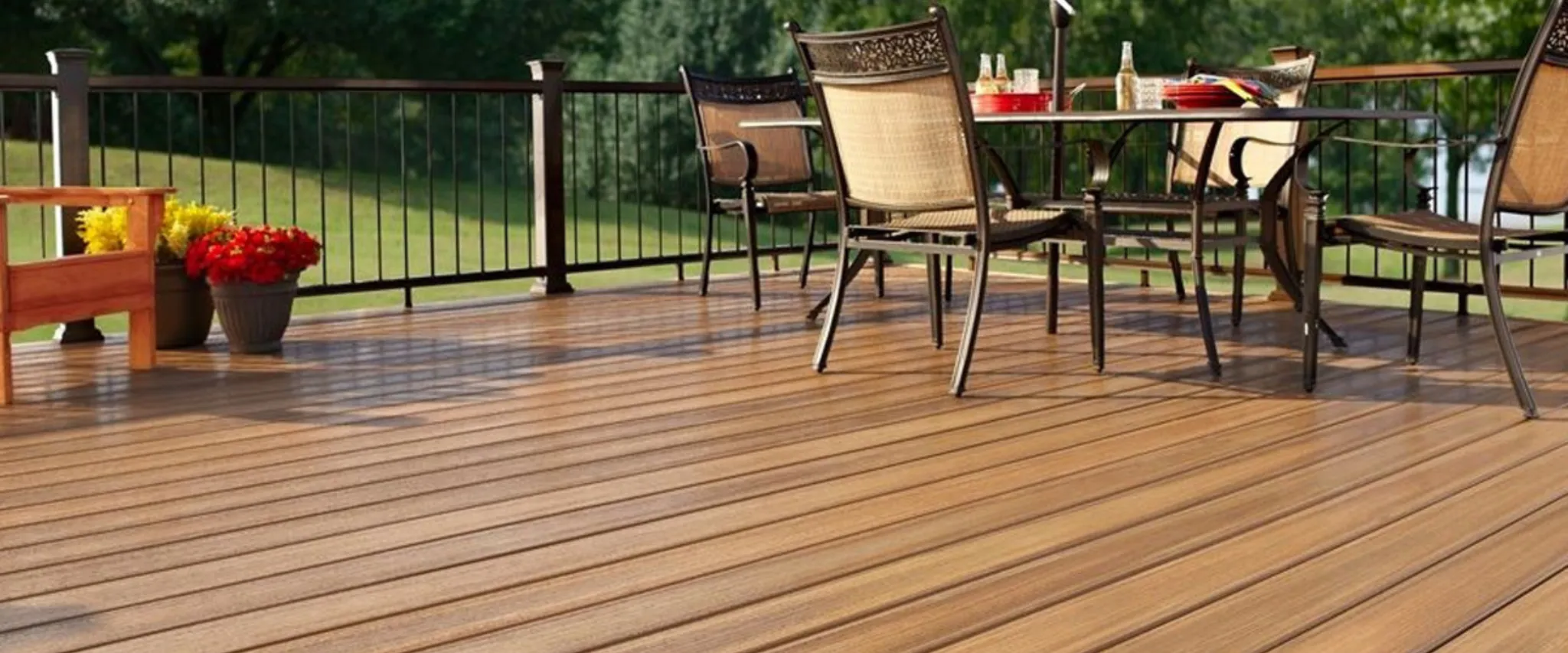
Key Takeaways
- MoistureShield’s Solid Core technology and CoolDeck® feature make it ideal for hot, humid, or wet climates, while Fiberon’s scratch-resistant boards are excellent for high-traffic areas.
- Fiberon excels in mimicking natural wood with its variety of textures and colors, whereas MoistureShield offers a more limited but still appealing wood-like aesthetic.
- Both brands are low-maintenance and eco-friendly, but Fiberon edges out with 94% recycled content in its products.
- Both brands offer a range of price points and long warranties (up to 50 years), making them suitable for a variety of budgets and needs.
Why Choose Composite Decking?
Before diving into the details, let’s briefly go over why composite decking has become so popular. Unlike traditional wood decking, composite decking materials are made from a mix of recycled wood fibers and plastic. This combination creates a tough, weather-resistant material that doesn’t require staining, sealing, or as much maintenance as natural wood.
Key Benefits of Composite Decking:
- Low Maintenance: Composite decking doesn’t need to be stained or sealed yearly.
- Durability: With resistance to rot, insects, and weathering, it can last for years.
- Eco-Friendly: Most composite brands use recycled materials.
Fiberon Decking: Highlights and Features
- Top Fiberon Features:
- Durable Construction: Fiberon decks are highly resistant to scratches, stains, and fading.
- Wide Range of Options: Fiberon offers many lines, so whether you’re looking for something affordable or premium, there’s likely an option.
- Realistic Wood Look: Many people love Fiberon for its beautiful, authentic wood grain finishes.
- Warranty: Fiberon backs its products with warranties up to 50 years for residential use, depending on the line you choose.
- Popular Fiberon Lines:
- Concordia: Premium line with an authentic wood look, great for high-end projects.
- Sanctuary: Mid-range line that balances beauty and durability with a natural, rustic style.
- Good Life: Budget-friendly option that still offers durability and weather resistance.
Fiberon’s eco-friendly approach also stands out. Their decks are made with over 94% recycled content, including recycled plastic bags and wood scraps, which makes it a top choice for environmentally conscious homeowners.
MoistureShield Decking: Highlights and Features
MoistureShield is another strong competitor in the composite decking market, known for its unique technology that makes it especially resistant to water and extreme temperatures. MoistureShield is a top pick for anyone who lives in a hot, sunny, or particularly humid climate.
- Top MoistureShield Features:
- CoolDeck® Technology: Some MoistureShield lines have this feature, which keeps the deck cooler underfoot, perfect for hot climates.
- Fully Capped Boards: MoistureShield boards are completely capped, offering protection on all sides from moisture and pests.
- Variety of Options: MoistureShield offers several lines with varying levels of durability and aesthetic appeal.
- Warranty: MoistureShield provides a 50-year limited warranty on many of its products.
- Popular MoistureShield Lines:
- Vision®: High-end line with an attractive wood-grain finish and CoolDeck® Technology.
- Elevate™: Affordable option that offers reliable durability for budget-conscious homeowners.
- Vantage™: Unique line that’s not capped, but offers exceptional water resistance, making it great for areas with high moisture exposure.
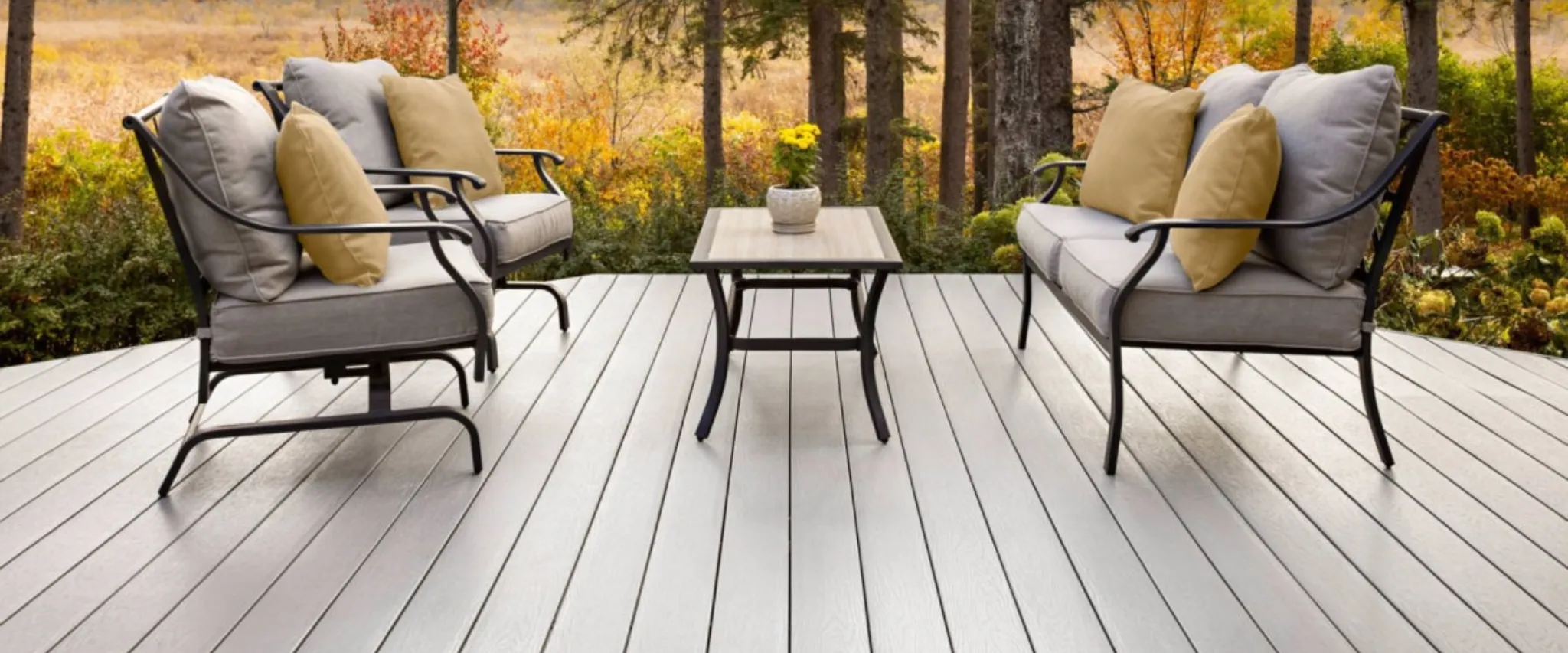
Comparing Fiberon and MoistureShield: Key Categories
Now, let’s break down how Fiberon and MoistureShield compare in essential areas like durability, appearance, cost, maintenance, and warranty.
- 1. Durability
Fiberon: With its scratch-resistant and fade-resistant finish, Fiberon performs well in high-traffic areas. The boards are also dense and sturdy, making them a reliable option for families or outdoor spaces that will see a lot of use.
MoistureShield: Known for its moisture resistance and CoolDeck® Technology, MoistureShield has an edge when it comes to areas with extreme weather or direct sunlight. The Solid Core construction ensures that MoistureShield boards won’t absorb water, so they’re a great choice for decks near pools or in humid climates.
Winner: MoistureShield takes the lead in durability, especially if your deck will be exposed to a lot of sun or moisture.
- 2. Appearance
Fiberon: Many homeowners are drawn to Fiberon for its realistic wood-grain look. With a range of colors and textures, it’s easy to find something that fits your style, from rustic to modern.
MoistureShield: MoistureShield also offers a wood-like appearance, but it may not have as much variety in textures as Fiberon. However, the Vision® line, in particular, has a nice range of natural tones and grains.
Winner: Fiberon wins for visual appeal, especially if you want a deck that closely mimics the look of natural wood.
- 3. Cost
Fiberon: With different price points across their product lines, Fiberon offers affordable options like the Good Life series as well as premium lines like Concordia.
MoistureShield: MoistureShield is also available at a range of prices. The Elevate line is the budget-friendly option, while the Vision line with CoolDeck® Technology falls into the higher-end category.
Winner: Tie. Both brands offer products at various price points, so you can find an option that fits your budget with either.
- 4. Maintenance
Fiberon: One of the biggest selling points for Fiberon is its low maintenance requirements. You won’t need to stain, sand, or seal it—just clean it occasionally to keep it looking good.
MoistureShield: MoistureShield is similarly low-maintenance, and thanks to its Solid Core construction, it doesn’t need much attention. However, areas with extreme weather may benefit from occasional cleaning and inspection.
Winner: Tie. Both Fiberon and MoistureShield are easy to maintain, requiring only simple cleaning with soap and water.
- 5. Warranty
Fiberon: Fiberon provides warranties of up to 50 years for residential use, which speaks to the brand’s confidence in its durability and longevity.
MoistureShield: MoistureShield also offers a 50-year limited warranty on many of its products.
Winner: Tie. Both brands back their products with long warranties, which gives peace of mind that your deck will last for years.
Environmental Impact
Both Fiberon and MoistureShield prioritize eco-friendliness, which is important if you’re looking to make a sustainable choice.
- Fiberon: Made with 94% recycled content, Fiberon’s decking options are some of the most eco-friendly on the market.
- MoistureShield: MoistureShield also uses recycled materials, though the exact percentage is not specified.
Winner: Fiberon takes a slight edge here for using a higher percentage of recycled content.
Final Verdict: Fiberon or MoistureShield?
So, which is better—Fiberon or MoistureShield? Here’s a quick summary:
- Choose Fiberon if you want a beautiful, wood-like appearance, a range of pricing options, and a more eco-friendly product.
- Choose MoistureShield if you need extreme durability, especially in hot or humid climates, or want a deck that will stay cool to the touch.
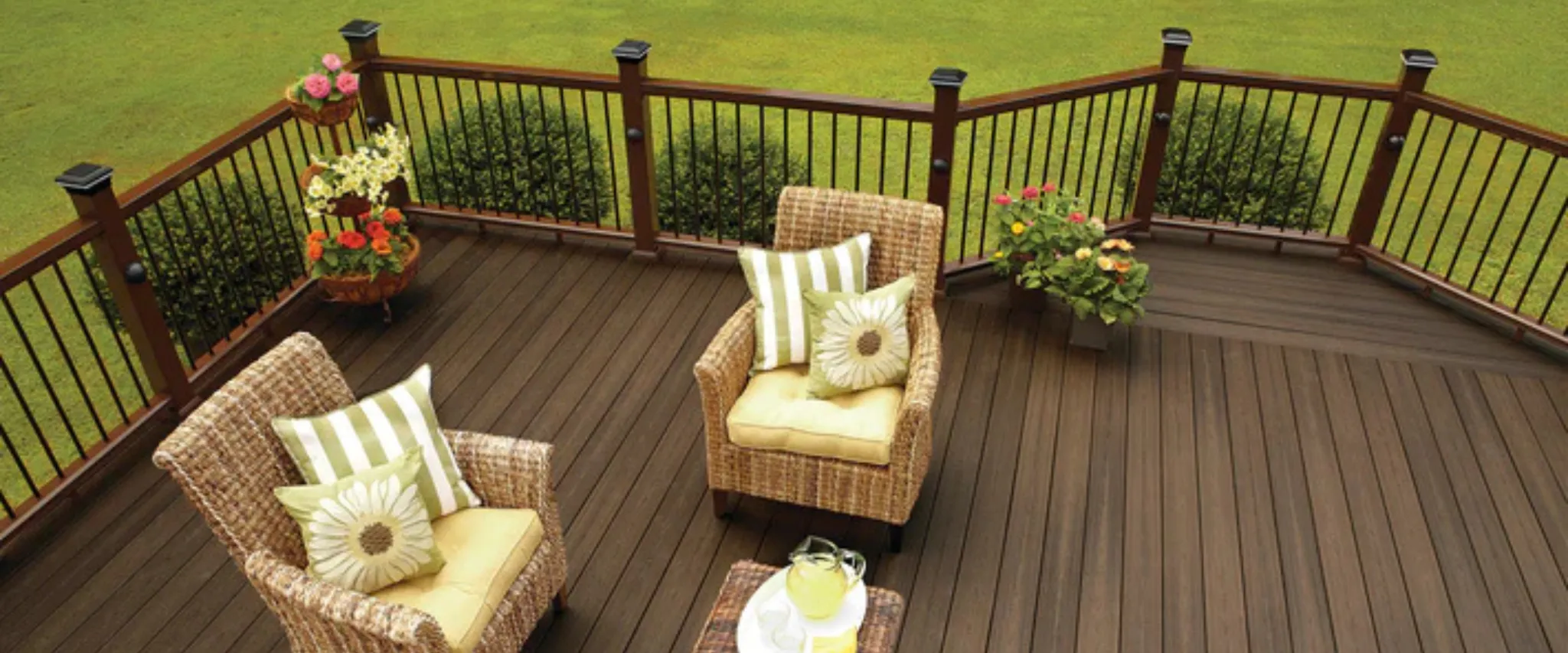
FAQs
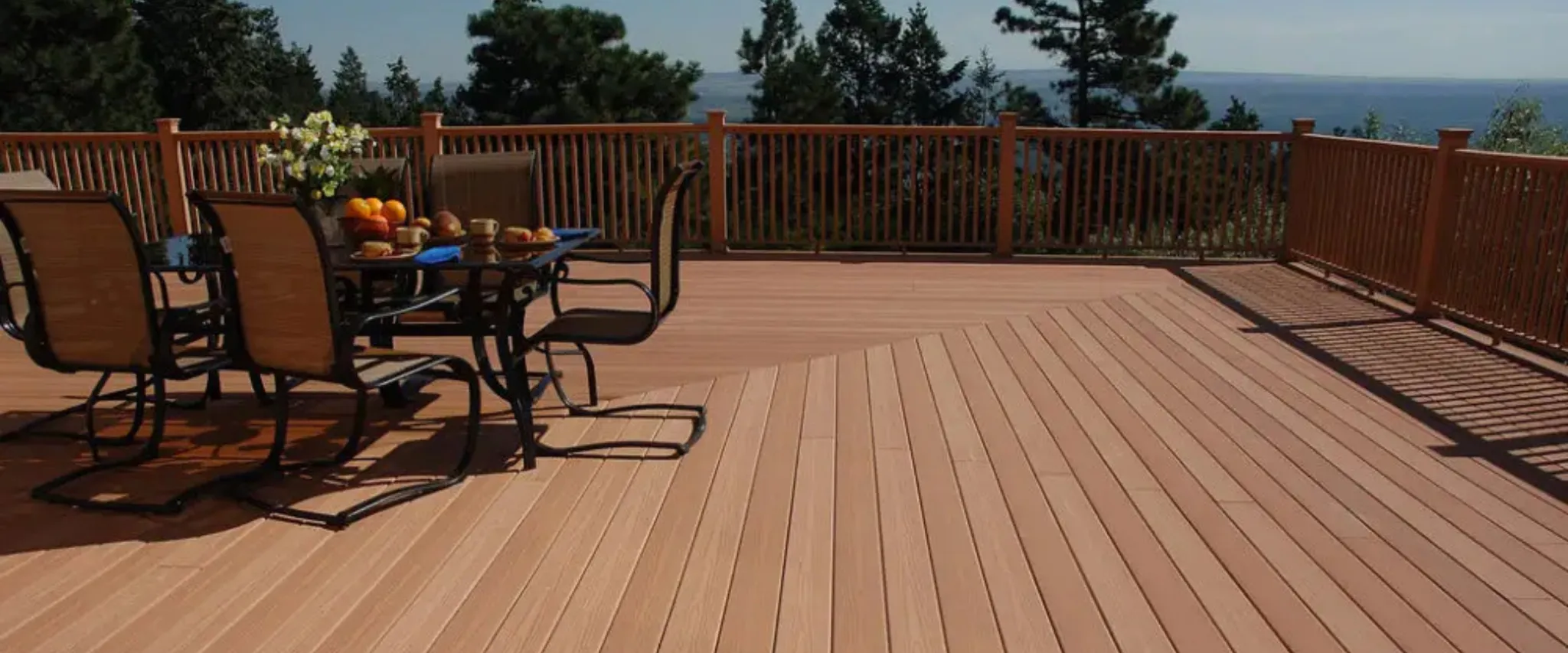
Ready to Start Your Deck Project?
If you’re excited to transform your outdoor space with a new composite deck, Riverview Decks can help. Our team has experience with both Fiberon and MoistureShield and can guide you in choosing the best option for your deck building project.
Contact us today at (865) 801-4545, and let’s start planning a deck you’ll enjoy for years to come!
